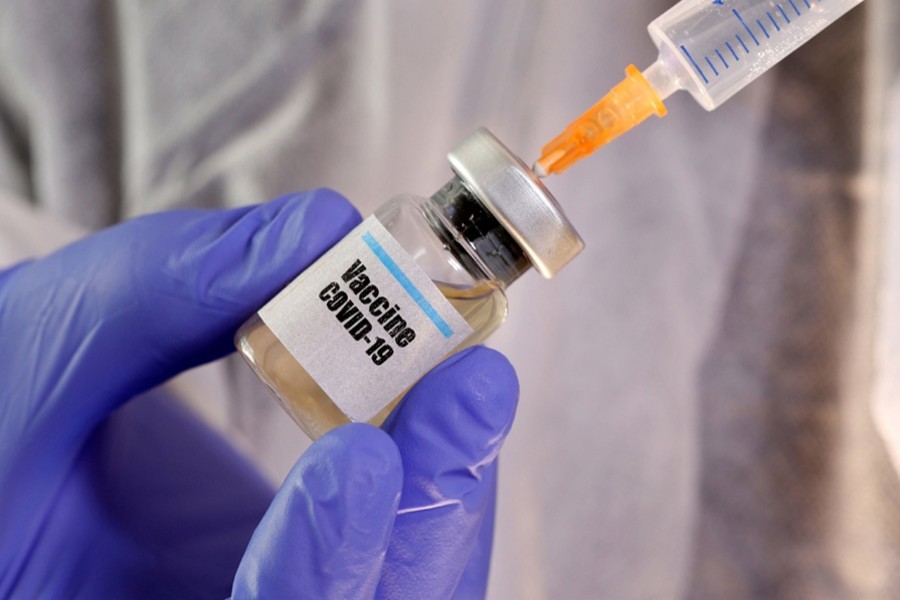When Covid-19 first emerged as a global pandemic, people around the world expected to see the virus defeated through the advent of a new vaccine. Even though inventing methods of inoculation against novel viruses is always a daunting task, most experts are hopeful that an effective vaccine will be approved for full use by 2021. As of now, eleven vaccines are at the last stage of the trial and six of them are already approved for limited use in various countries. But one crucial impediment still remains to humanity's fight against the coronavirus which is the absence of global collective initiative. Many countries have already politicised and weaponised the Covid-19 pandemic in their domestic politics and foreign policies. Perhaps, the world has never seen such kind of indifference to a global humanitarian issue called Covid-19 pandemic. Pandemic is supposed to unite the world. What we are witnessing in reality is that it is dividing the world.
Defeating a global pandemic, by definition, requires multilateral cooperation from different countries. Unfortunately, from the very beginning, some countries have been politicising Covid-19 either to further their own interest or to antagonise other countries. Most famously, Donald Trump called Covid-19 the "Chinese virus", tried to blame China for mishandling the virus in its initial days, accused the World Health Organisation (WHO) of being cronies of the Chinese government and pulled out of the organisation on July 6 altogether. Such actions create more distrust among nations in an already divided global landscape and decreases the probability of a truly global collaboration. Many developed countries are trying to create unilateral processes for fighting the pandemic and they are mainly based on ensuring access to an effective vaccine for their citizens at any cost.
According to Nature, the USA, the UK, France and Canada have already pre-purchased 5 billion doses of candidate vaccines from different companies. Adar Poonawalla, the CEO of the Serum Institute of India has claimed that there will not be enough doses of vaccines for the entirety of the global populace until 2024 and the problem can be exacerbated by this purchasing spree. It has already increased the prices of vaccines. For poorer nations, it has become almost impossible to procure any vaccine from the international market. This means most of the world's population will not receive the vaccine, in the foreseeable future.
Regrettably, a truly multilateral venture has not gained momentum so far. Regional bodies like ASEAN, SAARC, EU and even UN have held some conferences but to no avail. The World Health Organisation (WHO) has created an initiative called COVAX along with GAVI, the vaccine alliance and Coalition for Epidemic Preparedness Innovations to fund research for potential vaccines, to manufacture and to distribute at least one effective vaccine. It has promised 2 billion doses of vaccine(s) for its 172 member states by the end of 2021. Even though the EU, the UK, Canada, Japan and China have joined its ranks to provide financial support, none of them has agreed to a legally binding contract yet. Perhaps more importantly, the USA and Russia have not joined COVAX yet which is a significant blow for any global initiative.
Needless to say, developing countries like Bangladesh have found themselves in a precarious position. If only developed countries gain access to doses of vaccines, they will be able to jumpstart their economies, alleviate pressure from their healthcare systems and distribute doses to other countries at their whims which can create further global inequality and can cause a change in the power dynamics in favour of the affluent nations.
The Bangladeshi government has been remarkably successful in ensuring close ties with potential vaccine producers like China, India and Russia. The Honourable Prime Minister Sheikh Hasina has said that it is "imperative" that the vaccine be treated as a "global public good" in her bold address to the 75th General Assembly of the United Nations. China and India have assured the government that Bangladesh will be given doses of vaccines. Russia has also expressed its intention of providing a vaccine for Bangladesh. But China and India both have huge populations and may not be able to supply sufficient doses. Bangladesh is not relying solely on them. As a member state of COVAX, Bangladesh can expect enough vaccines for almost 20 per cent of her populace. As Bangladesh has always been an icon of multilateral cooperation, the government is also reaching out to Western nations to ensure that everyone in the country can be vaccinated.
But some challenges still remain. The WHO and the UN do not have authority over sovereign states and can not force any country to take part in a global initiative. Withdrawal of powerful nations from COVAX can harm the initiative significantly. Pharmaceutical companies that are currently developing the vaccines have significant leverage and even developing countries may have to buy doses from the international market. Fortunately, Bangladesh has a thriving economy that has not been affected by the pandemic so it will be possible for us to create bilateral agreements with these companies.
Distributing doses can also be a difficult task. It is of utmost importance that the government ensures vaccination for people like doctors, nurses, healthcare workers and the elderly first because they are at a higher risk of getting infected. This will take careful planning, efficient implementation and competent leadership at national and local levels.
Pandemics like Covid-19 really show how interconnected people are in a globalised world. The world is only as strong as the weakest country and no country can truly be secure unless every country has equal access to vaccines. Global catastrophes require multilateral cooperation and political willingness from every nation. Lack of global leadership and inward looking parochial nationalistic perspectives will not help fight the pandemic and solve such a humanitarian crisis.
Dr. Delwar Hossain is a Professor of International Relations, University of Dhaka.


